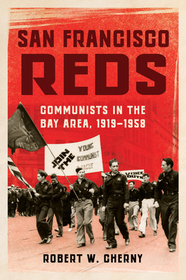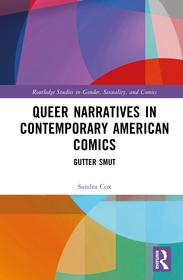
Narratives of Nostalgia and Repair in American Comics and Literature
(Dis)abling Exceptionalism
- Publisher's listprice EUR 149.79
-
62 125 Ft (59 167 Ft + 5% VAT)
The price is estimated because at the time of ordering we do not know what conversion rates will apply to HUF / product currency when the book arrives. In case HUF is weaker, the price increases slightly, in case HUF is stronger, the price goes lower slightly.
- Discount 20% (cc. 12 425 Ft off)
- Discounted price 49 700 Ft (47 334 Ft + 5% VAT)
Subcribe now and take benefit of a favourable price.
Subscribe
62 125 Ft

Availability
printed on demand
Why don't you give exact delivery time?
Delivery time is estimated on our previous experiences. We give estimations only, because we order from outside Hungary, and the delivery time mainly depends on how quickly the publisher supplies the book. Faster or slower deliveries both happen, but we do our best to supply as quickly as possible.
Product details:
- Publisher Springer Nature Switzerland
- Date of Publication 21 July 2025
- Number of Volumes 1 pieces, Book
- ISBN 9783031931253
- Binding Hardback
- No. of pages249 pages
- Size 210x148 mm
- Language English
- Illustrations XI, 249 p. Illustrations, color 680
Categories
Long description:
Through a study of both novels and comic books of 20th and 21st century, this book claims that it is not possible to create any narrative of exceptionalism without also manufacturing a sense of nostalgia for a past that may or may not have existed. Acts of personal or historical repair are central to such nostalgia and symptomatic of a desire to both escape and confront difficult pasts. The myth of American exceptionalism is one such narrative of nostalgia that, in its conception of damage and acts of ‘repair,’ disables histories.
Through works by Michael Chabon, Art Spiegelman, Philip Roth, Alan Moore, and Ta-Nehisi Coates, this book reframes the idea of heroism and locates it outside of the hegemonic narrative of American exceptionalism. This book puts comics studies and literature in dialogue with disability studies to argue that an ‘able’ history, just like an ‘able body,’ is a myth.
The figure of the superhero, or the trope of heroism, is central to the moments of historical repair as well as the identity politics of who repairs the damage. The corpus illustrates how American escapism and counterfactual conception of a nation’s past can prolong the trauma of beleaguered communities, cultures, bodies, and histories. This book reveals how prostheticising one version of history can amputate another; there is no narrative of exceptionalism that is also not simultaneously a narrative of disability.
More
Table of Contents:
Chapter 1: Escaping and ‘Working Through’ Cultural Trauma.-1.1 ‘Reminiscences of the Golden Age’: Reading ‘Escape’ and Jewish Masculinity.-1.2 Birth of the Jewish Superhero: The Golem and the Jewish American Dream.-1.3 ‘How am I supposed to make any sense out of Auschwitz?’: Jewish Heroism and ‘working through’ in Art Spiegelman’s Maus.-Chapter 2: Counterfactual Fiction and Disability Studies: No Able History, No Able Body.-2.1 ‘I was the prosthesis’: Counterfactual, Reparative, and Prosthetic Histories.-2.2 ‘History’s unpruned body’: On Form and Disability.-Chapter 3: On Race: From Paranoid Past(s) to Reparative Futures.-3.1 ‘But we were Wakanda... we were supposed to be exceptional’: Nostalgia in Black Panther’s Speculative Fiction.-3.2 ‘To forget is to truly slave. To forget is to die’: Memory, Mourning, and Melancholia.-Conclusion: Futures
More





